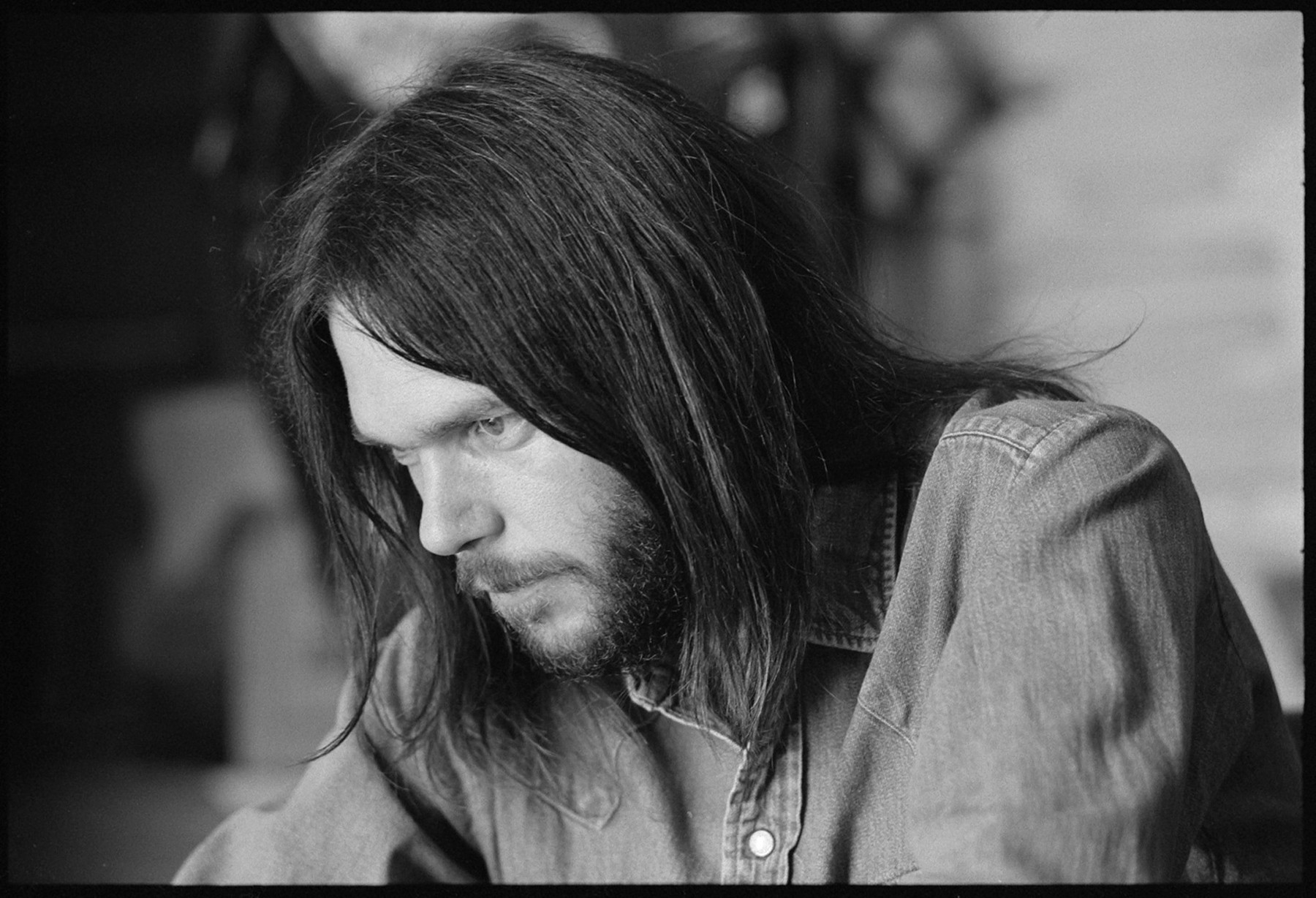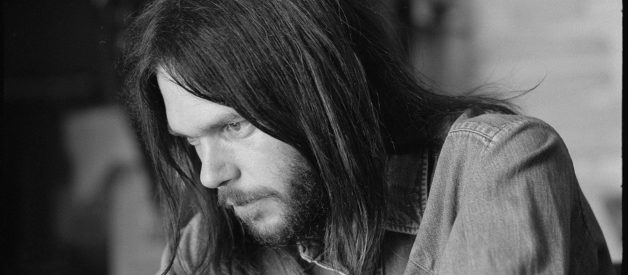A love letter to the lyrics of After The Goldrush by Neil Young

Well, I dreamed I saw the knights in armour coming, saying something about a queen.There were peasants singing and drummers drumming and the archer split the tree.There was a fanfare blowing to the sun that was floating on the breeze.Look at Mother Nature on the run in the nineteen seventies.Look at Mother Nature on the run in the nineteen seventies.
I was lying in a burned out basement with the full moon in my eyes.I was hoping for replacement when the sun burst through the sky.There was a band playing in my head and I felt like getting high.I was thinking about what a friend had said, I was hoping it was a lie.Thinking about what a friend had said, I was hoping it was a lie.
Well, I dreamed I saw the silver spaceships flying in the yellow haze of the sun,There were children crying and colors flying all around the chosen ones.All in a dream, all in a dream, the loading had begun.They were flying Mother Nature?s silver seed to a new home in the sun.Flying Mother Nature?s silver seed to a new home.
For such a quiet song it sure contains a lot of noise.
The knights in armour and the fanfare of the first verse ? all that singing and drumming. By the end there are silver spaceships overhead and the promise of a new frontier pulling humankind skyward. The contrast could not be greater. Gaudy, medieval celebrations for a bold mission into the future. A sci-fi epic in heraldic costume.
It?s deliberate, of course. We?re being asked to look back as well as look forward. The song wants us to find parallels between the quaint pageantry of the flagwavers and the hubris of the missionaries. There?s a clear distaste for the arrogance and pomp of power, and for anyone still so easily entranced by such simple answers. Imagine such a thing, in the nineteen seventies. Bet Neil thought that wouldn?t last. Never mind.
Everyone in this song is distracted. Why won?t they wake up?
There is someone waking up, kind of ? the guy in the middle verse. But there?s no mention of the pageant or the mission it celebrates. In fact, the verse could be from a different song entirely, though I suspect he?s actually the guy dreaming the rest of the story. Here too, in the basement, there is noise, and much distraction. Our dreamer wakes, his vision blinded by celestial bodies, first the moon, then the sun ? perhaps the only thing that humankind?s destination might share with its current home. A dope fug of noisy thoughts ? listening, remembering, hoping ? fill his head. He wants to get high again. Perhaps life is easier that way. You can?t help feeling that stoner apathy is getting a clip round the ear here, too, along with the flagwaving. As a way of life it?s more benign than the jingoistic cheerleading, but it?s just as uncritical.
So much noise. Everyone distracted. But from what?
While everyone within the song is wrapped inside a hazy bliss, the listener is prompted by the title to remember the lessons of the past and connect it to the story being told. After The Goldrush. The moment no one believes will come. The consequences no one thinks about. When the excitement has run out and so too has its source. A land stripped of its treasures, a bubble burst. What then, the title demands. What comes after the goldrush?
It?s a question no one in the song has the capacity or desire to ask. They?re all sleepwalking into the future. The flagwavers and the dreamer are both culpable, each giving a free pass to the myth that makes all this possible. That deathless pillar of American ideology that ? the frontier.
The frontier is the realm of eager opportunists, who used only to have to head west, and then down, to pursue happiness, and now in this song claim it?s time to head up.
The frontier is the endless promise of new land and the treasures it will surely yield, as if land could ever really be owned, rather than merely leased at an invisible cost.
The frontier is how west was won, how the railroad got built, and how Trump?s grandfather made his first money. It?s an idea that refuses to die. It still intoxicates, generations later. It still wins elections.
The reality of the old frontier was of a tough, unforgiving life, its settlers brave and hardy, but also ruthless. Yet it?s not the moral ambiguity of their success we remember, it?s the romance. After The Goldrush is an oblique challenge to that idea, and it?s as needed now as it was then. It?s not clear whether the title refers to time in which the story is set, or warns of a time in the story?s future. Or perhaps both. The mission is necessary because the fruits of that old journey westward have dwindled, or been squandered; whatever pulls us skyward is another false dawn. The song, caught between the consequences of one goldrush and the empty promise of another, is a call to make do for once, to slow down, to nurture. Instead humankind accelerates, hurtling incessantly forward, pursuing what it calls happiness while forcing Mother Nature on the run. Look at her go.
And look, too, at these missionaries, these new frontiersmen. The song calls them ?the chosen ones? ? anointed, part of future lore before they?ve even left the present. But they are also victims of that romance, the reality of their lives and their mission masked by the pageantry and optimism. The collective will to see the greener grass covers the stony ground.
They?re not heroes, of course, but simply ciphers for our imagined future. Small, insignificant. They are ?Mother Nature?s silver seed? scattered hopefully but indiscriminately, floating on the breeze like the fanfare that heralds their departure. Not in control of their environment, as they believe themselves to be, but entirely at its mercy. Destined to repeat the mistakes they think they?re leaving behind.
But the ceremony means we don?t have to think too much about that. We don?t want to look too close at the armour those knights are wearing, lest we see a chink. It?s more reassuring that way. Stay distracted. Let the noise drown it out. Besides, it?s time now. The loading has already begun. It?s actually happening. We are cargo now.
Neil, when asked about the song?s meaning, said ?hell, I don?t know. I just wrote it. It just depends on what I was taking at the time.?
All in a dream, I guess. All in a dream.
Thank you for reading this far. As you did, would you mind going a little further?Clicking ?Recommend? below will help to share this article with other readers. Following us on Medium (below) would be much appreciated.And we?re on Twitter too.Thank you.


